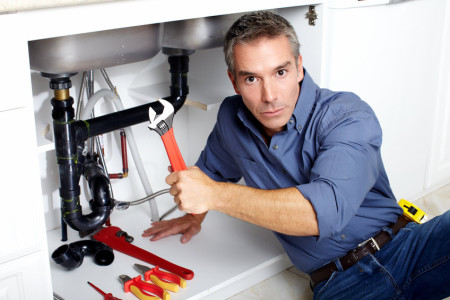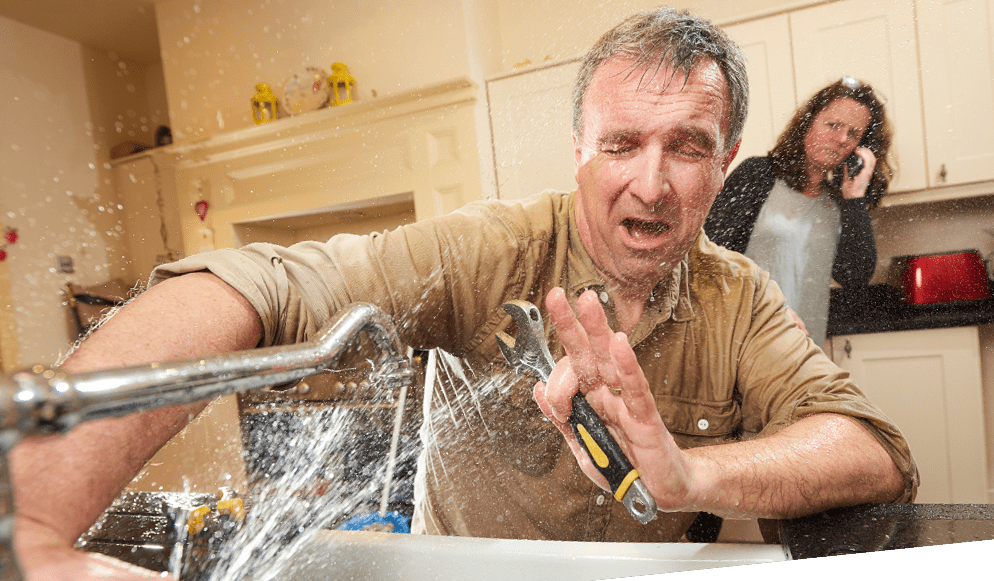The article author is making a number of good pointers related to Expert Tips for Managing a Plumbing Emergency Until Help Arrives in general in this post just below.

Pipes emergencies can strike at any moment, creating tension and prospective damages to your home. Whether it's a burst pipeline, a clogged drain, or a leaky tap, knowing exactly how to take care of the circumstance till an expert plumber shows up can conserve you from additional difficulties. This short article supplies essential emergency situation pipes tips to assist you mitigate damage and reclaim control during a pipes crisis.
Shut off the Water
The first step in any type of pipes emergency is to turn off the water supply. For localized concerns, such as a leaking faucet or toilet, shut off the shutoff near the fixture. When it comes to a significant leak or burst pipeline, locate your home's primary water shut-off shutoff and turn it off right away. Recognizing the location of these valves in advance can conserve beneficial time during an emergency situation.
Turn off Your Water Heater
In specific emergencies, such as a burst pipeline, it's smart to shut off your water heater. This prevents overheating or damage to the unit when water quits flowing. Switch off the power supply to the water heater (electric or gas) and allow it cool down to stay clear of prospective threats.
Briefly Stop a Ruptured Pipe
A ruptured pipe can bring about considerable water damages in minutes. To mitigate the problem:
Call an expert plumbing professional right away to resolve the issue completely.
Have an Emergency Pipes Kit
Prepare a basic plumbing emergency situation package to handle minor problems properly. Your kit ought to consist of:
Having these tools handy can make a substantial difference in your capability to handle emergency situations.
Unclog Drains Safely.
A clogged up drain can be an aggravating and untidy concern. Here's how to tackle it:.
If these techniques don't work, avoid using excessive force, as it may worsen the blockage.
Take Care Of Overflowing Toilets.
An overruning commode can create prompt turmoil. Right here's what you should do:.
Address Tiny Leaks with Temporary Repairs.
Small leakages can rapidly become significant troubles if left uncontrolled. Make use of these momentary repairs until expert assistance shows up:.
While these fixes aren't irreversible, they can assist reduce water loss and damage.
Take Care Of Frozen Water Lines Carefully.
In cooler environments, frozen pipelines are a typical emergency. If you believe a frozen pipe:.
Know When to Call a Specialist.
While quick fixes can help briefly, particular plumbing problems call for prompt professional interest. Call a plumbing professional if:.
Immediately speaking to a professional guarantees the concern is solved appropriately and prevents additional issues.
Prevent Further Damage.
Taking fast activity to minimize damage can conserve you money and time in the long run. Here's how:.
Verdict.
Pipes emergencies can be overwhelming, however with the appropriate knowledge and tools, you can handle the scenario properly until assistance shows up. By switching off the water, addressing small leaks, and utilizing momentary solutions, you can minimize damage and keep your home safe. Keep in mind, these ideas are momentary remedies; constantly consult a licensed plumber to deal with the source of the issue. Prep work and fast reasoning are your finest allies in any type of pipes emergency situation.
Expert Tips for Emergency Plumbing Repairs
Plumbing emergencies can be incredibly stressful and inconvenient. Whether it’s a burst pipe, a clogged drain, or a leaky faucet, these common plumbing emergencies need immediate attention to prevent further damage to your home. But before you panic, it’s important to understand the basics of plumbing repairs and the steps you can take to address these emergencies. In this article, we will share some expert tips to help you navigate through these situations and minimize potential water damage.
Identifying Common Plumbing Emergencies
Leaky pipes and faucets Clogged drains and toilets Burst pipes Low water pressure Water heater problems Essential Tools for Plumbing Repairs
Plunger: Useful for unclogging toilets and drains Adjustable wrench: Needed for tightening or loosening nuts and bolts Pipe wrench: Ideal for gripping and turning pipes Tape measure: Necessary for accurate pipe measurements Plumber’s tape: Helps create watertight seals Understanding Emergency Plumbing Services
Emergency plumbing services are designed to provide immediate assistance for unexpected plumbing issues that can cause significant damage to your home, business, or health. These services are typically available 24/7 and are staffed by experienced plumbers who can quickly diagnose and repair a wide range of plumbing problems.
When a plumbing emergency strikes, time is of the essence. Whether it’s a burst pipe flooding your basement or a gas leak posing a serious risk, emergency plumbing services ensure that help is just a phone call away. These professionals are equipped with the tools and expertise to handle any situation, minimizing damage and restoring your plumbing system to proper working order.
What Constitutes a Plumbing Emergency?
Burst pipes or water supply lines: These can cause extensive water damage and need immediate repair to prevent flooding. Gas leaks or suspected gas leaks: Gas leaks are extremely dangerous and require prompt attention to avoid potential explosions or health hazards. Sewer backups or overflows: These can lead to unsanitary conditions and significant property damage. Clogged drains or toilets causing water to overflow: Overflowing water can damage floors, walls, and other structures. Leaks or water damage causing structural damage: Persistent leaks can weaken the structural integrity of your home or business. No hot water or heating: A lack of hot water can be more than an inconvenience, especially in colder months. Common Causes of Plumbing Emergencies
Aging or corroded pipes: Over time, pipes can deteriorate, leading to leaks or bursts. Improperly installed or maintained plumbing fixtures: Faulty installations or lack of maintenance can result in unexpected failures. Tree roots or other debris infiltrating your sewer line: Roots can grow into pipes, causing blockages and backups. Frozen pipes or water supply lines: In colder climates, pipes can freeze and burst, leading to significant water damage. High water pressure or sudden changes in water pressure: Excessive pressure can strain pipes and fixtures, causing them to fail. Natural disasters such as floods or earthquakes: These events can disrupt your plumbing system and cause severe damage. Steps to Minimize Water Damage
Locate the water shut-off valve: Knowing where the valve is can help you quickly cut off the water supply to the affected area. Turn off the water heater: If there’s a risk of water coming into contact with the heating element, make sure to turn off the water heater to avoid potential accidents. Open faucets and drain pipes: By opening faucets and drain pipes, you can relieve pressure and empty any standing water. Collect and contain water: Use towels, buckets, or bins to collect water and prevent it from spreading to other areas of your home. https://leecountyplumbingandwellservice.com/expert-tips-for-emergency-plumbing-repairs/

We were brought to that write-up about Expert Tips for Managing a Plumbing Emergency Until Help Arrives from someone on a different web property. Sharing is nice. You won't know, you might be doing someone a favor. Thank you so much for taking the time to read it.
Call Today